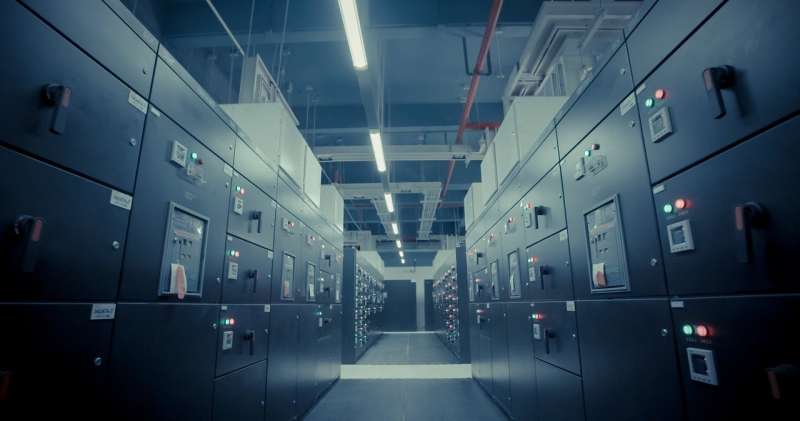Credit: CC0 Public Domain
Illinois lawmakers approved a data center tax incentive proponents say could make tech giants and other firms think twice about locating their data storage facilities anywhere else.
The incentive, passed as part of a $45 billion capital construction plan, would exempt qualifying data centers from state and local sales tax on equipment inside the facilities, such as cooling and heating equipment, servers and storage racks.
To qualify, a data center must invest at least $250 million in the facility and hire at least 20 full-time employees over five years, among other qualifications. The bill, which is awaiting Gov. J.B. Pritzker's signature, also includes an additional benefit for locating in an underserved area.
"Hopefully this legislation will stop the bleeding and stop those companies from going to rural Iowa and instead go to rural Illinois," said Tyler Diers, executive director of the Illinois Chamber of Commerce technology council.
The Chicago area ranks third in the country for data center capacity, but industry experts have long said that without a tax incentive to continue wooing the facilities, Illinois is at risk of falling behind.
"Other states have gotten proactively aggressive on the incentives to make it a more economically efficient place for data centers," said Andy Cvengros, senior vice president and co-lead of the Midwest data center practice at real estate firm JLL. "(Now) Chicago is on a level playing field."
The area developed as an attractive market for data centers for the same reason it became a hub for railroads: its central location. Much of the fiber optic cable the internet runs on was laid along railroad tracks, and Chicago acted as the connector between east and west. Plus, the city has reliable electricity and isn't at risk for the hurricanes or earthquakes that threaten the coasts.
The only markets in the country with more data center capacity measured in megawatts—than the Chicago area are Northern Virginia, home to many of Amazon's data centers, and the Dallas-Fort Worth area, according to information from real estate firm CBRE. But Northern Virginia's market is much larger and growing much quicker.
The Chicago market is 40% smaller than the Northern Virginia market, which grew 16% between June 2017 and June 2018, according to a January report from the Illinois Chamber of Commerce Foundation. The Chicago market grew only 7% during that time.
The report looked at a data center Apple is building in Iowa as an example. If a data center like that were built in Illinois, it could create about 3,360 jobs, $203.9 million in labor income and $521.7 million in economic output, according to the report.
©2019 Chicago Tribune
Distributed by Tribune Content Agency, LLC.























